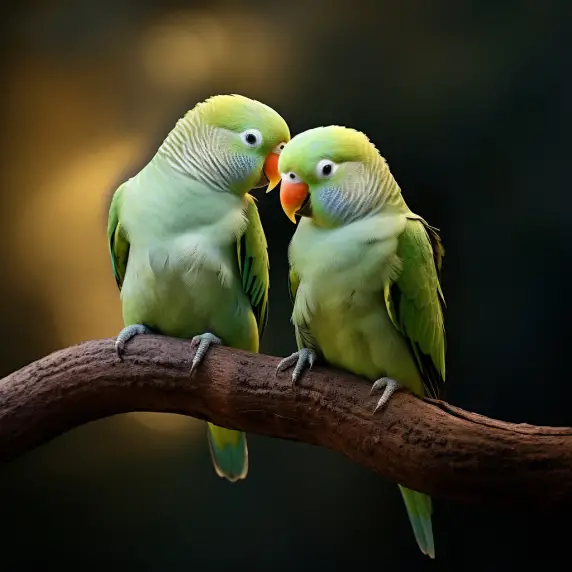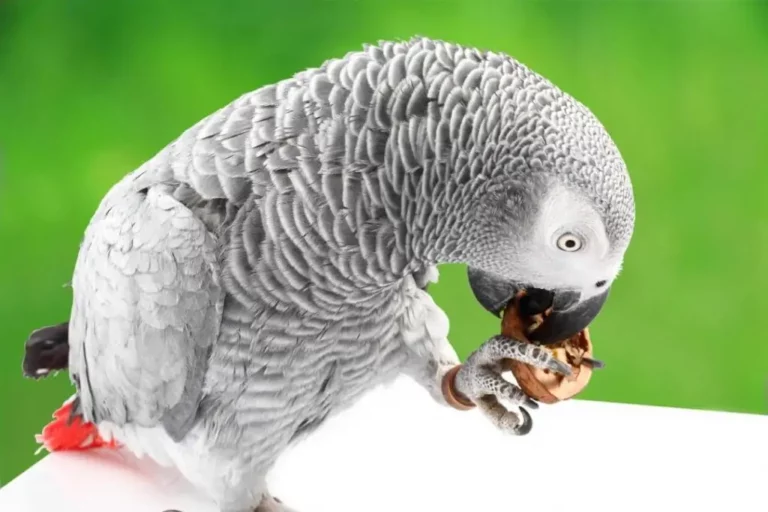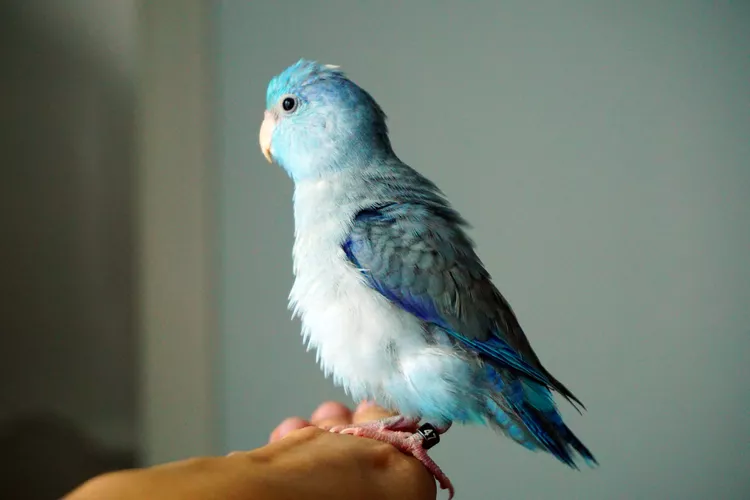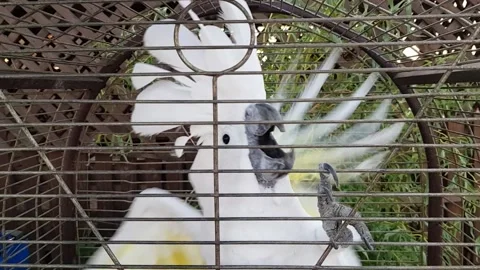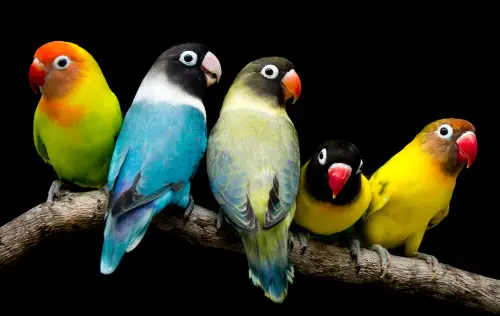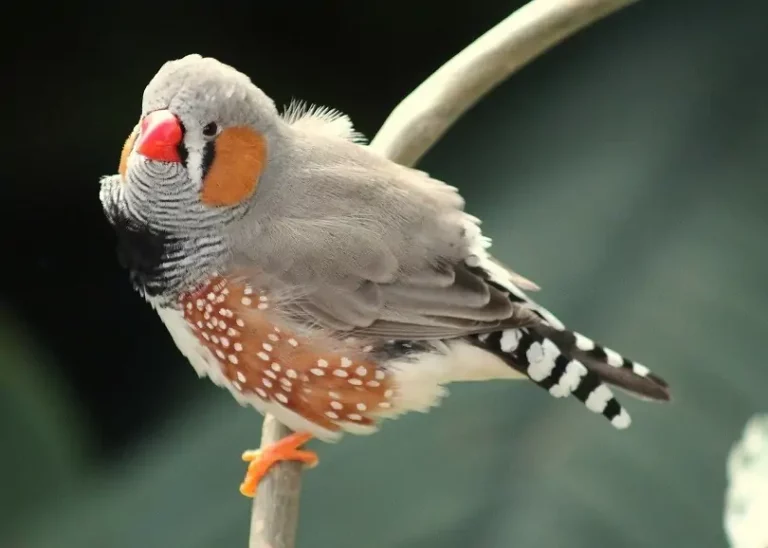Why Do Parakeets Puff Up? Understanding the Behavior
Understanding your parakeet’s behavior can be both fascinating and perplexing. It’s common to observe them engaging in different activities, with one behavior that often piques curiosity being their tendency to puff up.
If you’ve ever wondered “why do parakeets puff up?“, you’re not alone. This comprehensive guide aims to decipher this intriguing aspect of parakeet behavior, exploring various reasons behind it, and offering insights into bird health and communication.
Key takeaways:
- Parakeets puff up for numerous reasons, including relaxation, temperature regulation, illness, and communication.
- Understanding the context and associated behaviors can help determine the cause.
- Observing your parakeet’s behavior over time can provide valuable insights into their health and well-being.
Different Manifestations of Parakeet Puffing
Parakeets can puff up in various ways, each with its own unique implications. By observing and understanding these behaviors, we can better understand and care for our feathered friends.
Why Do Parakeets Puff Up and Shake?
Parakeets puff up and shake as a form of self-grooming. It helps to realign their feathers, remove any dirt or debris, and stimulate the release of protective oils from their preen gland. It’s akin to a quick bath and is usually a healthy behavior unless accompanied by other signs of distress or illness.
Why Does My Budgie Puff Up When I Talk to Him?
This is often a sign of trust and comfort. Your budgie puffs up when you talk to them because they associate your voice with safety and relaxation. Think of it as their way of settling down and getting cozy while they listen to your voice.
Why Does My Bird Puff Up When I Pet Him?
When your bird puffs up while being petted, they are typically expressing enjoyment and comfort. It indicates they trust you and feel secure in your presence. However, always ensure your petting is gentle and focused on the head and neck areas.
Avoid touching the back and belly as it can be misconstrued as mating behavior.
Why Does My Bird Puff Up When He Sees Me?
Your bird puffing up upon seeing you can signify recognition and anticipation. They’re expressing a kind of greeting, much like a dog wagging its tail. It’s an indicator of their bonding with you and a sign of a positive relationship.
Understanding Parakeet Puffing Behavior
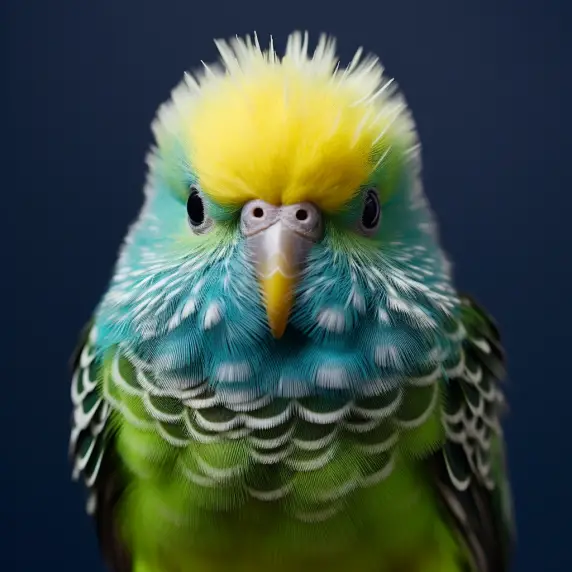
Parakeets, like other birds, are social animals with complex behaviors. Understanding these behaviors helps us build better relationships with our feathered friends. These behaviors include both normal, everyday actions like puffing up and more nuanced ones, providing invaluable clues to their emotional and physical state.
What Does Puffing Up Signify in Parakeets?
Parakeets puff up their feathers for numerous reasons: to keep warm, exhibit comfort, show contentment, or engage in self-grooming. However, puffing can also be a sign of stress, discomfort, or sickness. It’s crucial to observe their behavior contextually and look for accompanying signs.
Social Interactions and Puffing Up
Social interactions significantly influence a parakeet’s behavior. They might puff up to appear larger and more intimidating, whether during play or a display of dominance. Similarly, puffing up can express happiness when they see a familiar face or hear a favorite sound.
Puffing Up as a Sign of Illness
Prolonged and frequent puffing, especially when paired with inactivity, loss of appetite, or changes in droppings, can be a cause for concern. It might signal illness, requiring immediate veterinary attention. The bird may be trying to increase its body temperature due to sickness.
Puffing Up and Self-Grooming
Puffing up followed by shaking or preening is part of a parakeet’s self-grooming ritual. It helps to realign their feathers, distribute protective oils, and get rid of any dirt or parasites. It’s an entirely healthy and typical behavior.
By understanding these behaviors, we can provide better care for our parakeets, ensuring they remain healthy, comfortable, and content in their environment.
The Different Reasons Why Parakeets Puff Up
Puffing up is a universal behavior among parakeets, but it can signify a range of conditions, from happiness and comfort to fear or illness. It’s crucial to understand these nuances to interpret your pet’s needs accurately.
Temperature Regulation
Birds puff up their feathers to trap air close to their bodies. The trapped air warms up with their body heat, serving as a natural insulator to keep them warm. This behavior is most noticeable in colder conditions or when they’re trying to relax.
Feeling Relaxed or Sleepy
When a parakeet feels safe and comfortable in its environment, it will often puff up. This action is typically accompanied by a happy, relaxed bird who might be preparing to take a nap.
Bathing and Preening
Parakeets puff up during bathing and preening, which is an essential part of their grooming routine. Puffing helps them access all their feathers and distribute preen oil evenly, which helps keep their feathers clean and waterproof.
Communication and Emotion Display
Parakeets use puffing as a means of communication. They may puff up their feathers to appear bigger when they are excited or want to display dominance. If your bird puffs up when you approach or interact with it, it might be a sign of comfort and trust.
Sign of Sickness
While puffing is generally a harmless behavior, when paired with other signs like lethargy, loss of appetite, change in droppings, or ruffled feathers, it might indicate illness. A bird that remains puffed up for extended periods might be trying to increase its body temperature due to illness and should be taken to a vet for a checkup.
Interpreting the context and accompanying behaviors when your parakeet puffs up will help you understand its needs better, ensuring its well-being.
Caring for a Puffed Up Parakeet: Treatment and Prevention Strategies
Parakeets puffing up is not always a cause for alarm, but when it is, knowing how to respond can make all the difference. Here we provide some strategies for addressing various puffing scenarios:
Creating a Comfortable Environment
Keeping your parakeet’s environment comfortable is paramount. Ensure the cage is at a suitable temperature, generally between 65-80°F (18-27°C). Cold environments can cause your bird to puff up frequently, which could lead to stress over time.
Also, keep the cage clean and offer an enriching environment with toys, perches, and a healthy diet.
Allowing for Adequate Rest
Parakeets require around 10-12 hours of sleep per night. Disturbances during their sleep time can lead to stress, so make sure your parakeet has a quiet, dark place to rest without interruptions. Using a cage cover can help achieve this.
Responding to Illness
If you notice your parakeet puffing up along with other symptoms such as changes in droppings, weight loss, or unusual behavior, it’s time to visit a vet. It’s crucial not to ignore these signs as birds are adept at hiding illness. Early detection can increase the chances of successful treatment.
How to Treat a Puffed-Up Budgie
If your budgie is consistently puffed up and displaying signs of illness, it’s crucial to take it to the vet. Based on the diagnosis, the vet might prescribe medication or dietary changes. Ensure you follow the vet’s instructions thoroughly.
Preventive Measures
Keeping your parakeet healthy is the best way to prevent sickness-related puffing. Regular vet check-ups, a balanced diet, plenty of exercise, and a stress-free environment are all vital for your bird’s overall well-being.
Remember, your parakeet depends on you for its care and comfort. Understanding their behaviors, such as puffing up, is part of providing the love and care they deserve.
Understanding Your Parakeet’s Health: Key Signs to Watch For
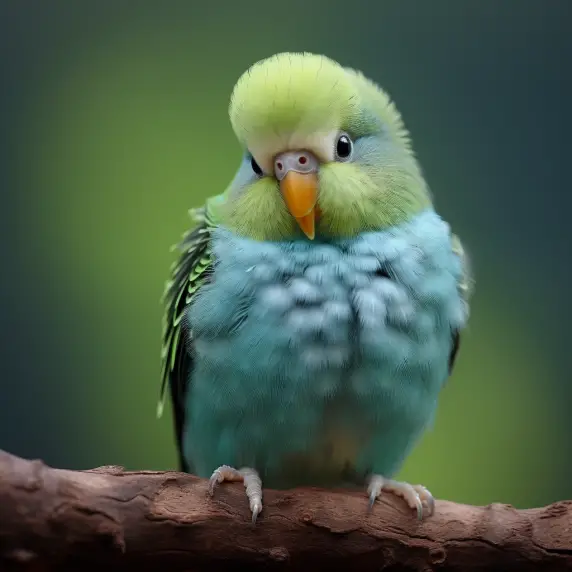
Parakeets are relatively hardy creatures, but they can still succumb to illness, which may be signaled by a constant puffed-up appearance. Here, we discuss some key signs to watch out for that might suggest your bird isn’t feeling well:
Change in Activity Levels
Parakeets are known for their lively and active nature. A sudden decrease in activity, such as your budgie being puffed up and sleeping all the time, may indicate that your bird isn’t feeling well.
Alteration in Appetite or Drinking Habits
If your parakeet’s eating or drinking habits have changed dramatically, it could be a sign of illness. A bird that’s eating significantly less or more than usual or drinking an excessive amount of water should be checked by a veterinarian.
Change in Droppings
Bird droppings can tell you a lot about your bird’s health. Changes in color, consistency, or frequency could signify a health issue.
Changes in Physical Appearance
Besides puffing up, other changes in your bird’s physical appearance could indicate illness. Look out for ruffled feathers, weight loss, changes in the eyes (such as cloudiness or discharge), or changes in the condition of the beak or feet.
Parakeet Puffed Up and Died
Sadly, if a parakeet is constantly puffed up and shows other signs of illness, it can die if not treated promptly. Remember that puffing up can be a symptom of a wide range of illnesses, many of which can be fatal if left untreated.
If your parakeet shows signs of illness, including constant puffing, it’s crucial to get it to a vet as soon as possible.
By keeping a close eye on your parakeet and noting any changes in its behaviors or physical appearance, you can ensure that it gets the help it needs as soon as possible. Always consult with a vet if you’re unsure about your bird’s health.
Related:
Frequently Asked Questions
In this section, we address some of the common questions bird owners have about parakeet puffing and related behaviors.
What does it mean when my parakeet is puffed up?
Puffing up can be a normal part of a parakeet’s behavior and can indicate comfort, contentment, or a desire to stay warm. However, if your parakeet is puffed up consistently, it might be a sign of illness.
Why does my bird puff up when I pet him?
Parakeets often puff up as a reaction to being stroked because it feels pleasant to them. It’s part of their grooming behavior, and they are fluffing up their feathers to realign them.
What does it mean when parakeets open and close their mouths?
Parakeets can open and close their mouths for several reasons. They might be trying to cool down, preparing to regurgitate food for a mate or their young, or displaying signs of respiratory illness. If your bird is frequently opening and closing its mouth without any apparent reason, it’s best to consult a vet.
What happens if my parakeet keeps bringing its head up and down?
Parakeets bob their heads for many reasons. It could be a sign of happiness, excitement, or mating behavior. However, if your parakeet is bobbing its head excessively and showing other signs of distress, such as heavy breathing or loss of appetite, it could be a sign of illness and you should seek veterinary advice.
Final Thoughts
Parakeets puff up for various reasons, from expressing comfort and contentment to dealing with cold temperatures or illness. It’s vital as parakeet owners to understand these nuances in bird behavior and recognize when the puffing may indicate a health concern.
Regular interaction and observance will help you understand your parakeet better, but always consult a vet if you notice any abnormal behavior or changes in your bird’s routine. Understanding ‘why parakeets puff up’ will ultimately allow you to foster a healthier and happier environment for your feathered friend.

